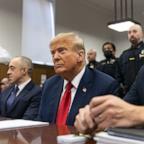Companies Criticize U.S. Business Visa Process
U.S. business visa process called cumbersome.
Sept. 5, 2010#151; -- Agricultural equipment makers and customers worldwide gathered in Orlando in January to meet, greet, sell and buy at the trade show AG Connect Expo.
About 1,460 international attendees registered for the show, organized by the Association of Equipment Manufacturers. Nearly 500 of them never made it.
The reason for the absentees: They couldn't obtain a U.S. entry visa in time to attend, most of them told the association afterward. There's no telling how many will attend next year.
"The visa process is very slow and very arbitrary," says Dennis Slater, the association's president. "Either they get denied or it has a cooling effect, and they go elsewhere. We're in a bad economy, and there's a lot of places worldwide where you can buy equipment."
Slater's refrain is increasingly echoed by businesses and trade groups that fear their competitive edge is hurt by the U.S. visa approval process at a time when other countries are eager to woo foreign customers.
U.S. companies say a growing number of foreign business travelers particularly from robust emerging markets such as China, India and Brazil are avoiding coming to the U.S. because they don't want to deal with the cumbersome, time-consuming process.
U.S. embassies got more stringent in approving visa applicants after the Sept. 11 terror attacks, and the policy hasn't improved since, they say.
The State Department doesn't deny that visa issuance can trip up prospective visitors, but its internal data show that the problem isn't as bad as industries claim, says David Donahue, the department's deputy assistant secretary for visas. Consular officers must carefully weigh security and forgery concerns and the possibility of applicants overstaying their visits and becoming immigrants, he says.
However, he says, staffing at embassies where visa demand is high has been beefed up.
The Center for Exhibition Industry Research, which studies events and attendance, says its data show that the U.S. economy lost $290 million in domestic travel spending from the 10 largest trade shows and conferences in the last 12 months because registrants couldn't get visas.




